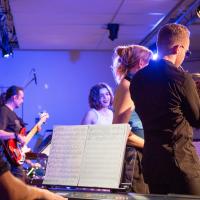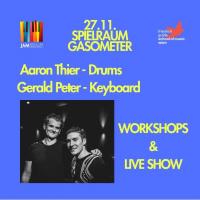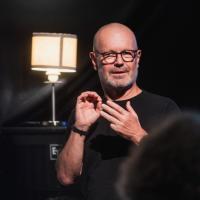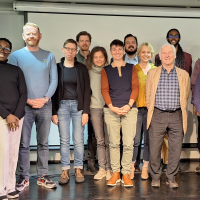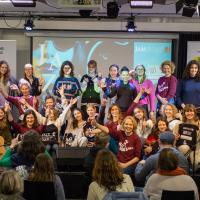5th INARJ Conference - “Places and Spaces”
The International Network for Artistic Research in Jazz (INARJ) will host its fifth conference at Koninklijk Conservatorium Brussels from 26 to 27 February 2026. We welcome contributions that address the conference theme “Places and Spaces” from any perspective that uses jazz and/or popular music practice as a mode of critical engagement. Contributors may choose to address one of the following sub-themes, or alternatively to propose a submission that reflects the conference theme from a different perspective. Selected presentations will also have the opportunity to submit an exposition for a special edition of ARJAZZ Journal for Artistic Research in Jazz.
Performance spaces
The legendary venues, clubs and festivals, the NYC loft scene and the Arkestra house in Philadelphia, the ‘bandstand’ and the recording studio. Histories of jazz are also histories of the places where music is made. This strand opens the floor to presentations that explore themes related to performance spaces.
Digital spaces
As we progress through the third decade of the twenty-first century, digital communication assumes an ever more central role in our lives. From the metaphorical – Twitter as the ‘digital town square’ – to the literal – Meta’s ‘multiverse’, digital spaces challenge traditional notions of place and the way we interact with them. This strand invites contributions that engage with the meanings of music in digital spaces.
Embodiment
Numerous discourses challenge the once ubiquitous Cartesian distinction between body and mind. Approaches including corporality, embodiment, 4E cognition inform many areas of contemporary enquiry. The types of knowledge produced by artistic research can be characterised by Michael Polyani’s assertion that “we know more than we can tell.” This strand invites contributors to explore the way that artistic research can discursive these types of knowledge by conceptualising the body as a site of research.
Ecological spaces
The rapid acceleration of climate breakdown creates ever more urgency. While many claim that art is useless — or worse a distraction — in the face of this global crisis, others argue that art should be seen as an indispensable tool in the fight for a new future. As Amitav Ghosh writes, “imagining of possibilities is not, after all, the job of politicians and bureaucrats.” This strand asks contributors to imagine how jazz practice might intersect with sites of ecological importance.
To contribute, please send a 250-word summary of your proposed presentation, and a brief biographical statement of 50 words to monika.herzig@jammusiclab.com by September 15, 2025. Proposals will be reviewed by the convenors and participants will be notified by October 20, 2025. Proposals should be positioned in one of the four discussion areas above and can be in the following categories:
- Presentations: 20-minute presentation followed by 10 minutes of Q&A and discussion
- Performance Projects: 20-minute projects followed by 10 minutes of Q&A and discussion
While certain conference sessions will be provided in hybrid format, we encourage participants to plan on in-person attendance for more effective engagement in discussions and projects.
Projects can be shared via recorded materials or live. For live performances, the room allows for a basic combo setup with keyboard, bass and guitar amps, and drum set. However, it is not possible to allow for rehearsal time and space.
INARJ Conference Convenors
Matthias Heyman (Koninklijk Conservatorium Brussel / Vrije Universiteit Brussel) – Host
Sebastian Bailey (doctoral student, University of Toronto / University of the Arts Berlin)
Andrew Bain (Royal Welsh College of Music & Drama)
Mike Fletcher (Royal Birmingham Conservatoire)
Birgitta Flick (doctoral student at University of Music and Performing Arts Vienna)
Monika Herzig (JAM MUSIC LAB Private University for Jazz and Popular Music Vienna)
Michael Kahr (JAM MUSIC LAB Private University for Jazz and Popular Music Vienna / University of Music and Performing Arts in Graz)
Share:
